The mantra of “one size fits all” product or service model does not apply to many areas of our personal or professional life. With something as important as planning for your retirement, your child’s education, or managing your portfolio, you want to maximize your chances of meeting your needs, goals, and objectives now and into the future. We are all bombarded with opinions from “experts”, targeted online marketing, and noise fed to us via the media, and it leaves many asking questions on where to go with these important questions. I want to provide you with relevant information and questions you can ask to help you make an informed and educated choice for who matters most…your family. After doing research and interviewing different financial planners, you may not decide to work with us and that is okay. What is most important is finding the correct fit for you, having trust and confidence in their abilities, and making sure they are helping you on the path towards your needs, goals, and objectives.
A common question we hear is “what is a Registered Investment Advisor (RIA)?” An RIA is a firm or company that follows certain federal and state regulations and can provide certain forms of advice, with a key one of those being investment advice. RIAs must adhere to the fiduciary rule, which states that a client’s interest comes first, period. This places the advisor second as it relates to anything offered, and steers advisors towards cost effective recommendations that strive to meet your needs, goals, and objectives. It is important to work with an advisor because of the comprehensive nature of the advice they can provide. We don’t just focus on investments, but also cover a myriad of other interrelated topics including retirement planning, estate planning, tax planning, risk management and insurance planning, and portfolio management to name a few. I will not belabor the point, but we feel strongly that everyone should create a financial plan and review each of these since we all have an interest in every single one of them.
Below I will provide an overview of various items to consider when comparing different small, medium and larger RIAs.
Transparency
This is a vital aspect of any relationship and especially when it comes to your hard-earned savings. Items to consider as it relates to transparency include clear and up-front fees, statements that you can understand, access to information (e.g., client agreements, past statements, tax documents, etc.). Transparency is non-negotiable regardless of the firm size, and questions you have should be easily addressed.
Proprietary Strategies
Proprietary strategies can definitely have benefits, but there are also drawbacks you should be aware of. Areas to inquire about this might be as it relates to specific products or services. A good example of this is investment products or services offered by some mid to larger RIAs. Larger firms may have various business segments under “one umbrella”, and they might offer strategies that are designed and managed “in-house”. There are excellent strategies that fall in this category, but there are others to shy away from. Good questions to ask might be:
- Is your investment platform “open architecture” (meaning can they choose from all different investments on the market)?
- What additional options can you provide aside from this strategy offered through your parent company (this can include mutual funds, ETFs, separately managed accounts, “white labeled” alternative strategies (private equity, private credit, hedge fund strategies)?
- Where are the cash and cash equivalents held (if it is with an affiliated entity, ask more questions)?
- Can you explain the investment selection process (especially if there is an overlap in the name of the investments and the firm name)?
Technology
As with the rest of the world, technology over the past decade has advanced significantly within the realm of financial planning and investment portfolio management. More robust software is now available to all levels of RIAs. There are several great financial planning software providers that are similar, and used at small, mid, and large sized RIAs. A recent trend has been larger technology companies acquiring smaller ones under their umbrella to expand their offerings. This provides a good turn-key solution for many RIAs (regardless of size), but also does fall into the “one-size fits” category. Other firms that are “open architecture” can identify the best solution for their firm and clients, and work to integrate that into their technology stack. Good questions to ask are:
- Are the majority of the technologies used by your firm from one provider?
- Is there a secure online portal for file sharing?
- What are the various ways we may communicate with you?
- Have there been any interruptions in service from your providers/custodians in recent years (e.g. the meme stock trading in the first quarter of 2021)? If so, what has been done to rectify this?
Meetings – In-person/virtual/phone
Other advances in technology have resulted in different ways to meet with your advisor. We now have different options on how to meet with advisors, providing greater flexibility for what will best suit your schedule. RIAs of all sizes are likely to offer meetings in-person, via phone, or virtually, and it really boils down to preference. Many individuals are comfortable with a phone call or virtual meeting, enjoy the convenience, and do not require there be a physical building they go to. To that point, larger RIAs may have convenient locations in certain larger metropolitan areas but have large campuses where the bulk of their advisor’s office is from. Smaller and mid-sized RIAs might be more locally or regionally based and provide the same meeting options. While many things have changed in our society, I would argue that it is still beneficial to have the option of an in-person meeting enabling you to sit across from the advisor and look them in the eyes.
Contacting your advisor with questions has become something that is more challenging for some. We have all experienced bad connections, having difficulty understanding the person on the other end of the phone, or getting sent through a call tree. Recent surveys have targeted ease of communication via the phone, and reaching someone familiar with your relationship, as a common client pain point. While you may have direct contact with your advisor, regardless of the RIA size, RIAs with an office in your area/region may be a better fit than a large nationwide RIA.
Fees
Discussion of fees is very important, and there are many different types of fees out there. Fully understanding how financial advisors get compensated is essential. Also, inquire if there are any additional fees, credits, or adjustments that might appear in the statement. Below is an overview of several different types:
- Flat fee – A flat fee is simple and relatively straight forward. This could be taken annually (paid out of pocket or withdrawn from your account) or maybe a one-time fee for a stand-alone service (such as college education planning).
- Assets under management – This requires more “math”, but again should be very transparent. Fees are charged to the client based on the value of your investments the advisor actively manages. Typically the fee is a percentage of assets, and is reduced as the assets under management increase. Often times these fees are paid quarterly directly out of the investment portfolio (not out of pocket), and are based on the past 3 months’ account values.
- Retainer – Many are familiar with retainer fees as they relate to the legal profession, but some advisors are adopting them as well. This requires an up-front payment for services to be rendered and may or may not be the total amount of fees required for the services.
- Embedded fund fees – Different shares of mutual funds have various underlying fees, and if you are looking at the different share classes it might look like alphabet soup (e.g., A, C, I, etc.). Typically, the lowest fee for these types of investments would be an institutional share class. It is not a hard and fast rule, but typically mid to larger sized RIAs will have access to this share class. This is because the mutual fund manager will look at the amount of assets a specific RIA has in the strategy, and not the account level. Looking at the RIA, instead of the account, is important because these lower cost share classes often times have a minimum amount of investments to be eligible (e.g., $500,000 to $1,000,000).
When it comes to the fee discussion, you need to determine if you are receiving the services you need for a reasonable fee. Over the past decade we have seen a democratization of fees, and this compression is relatively widespread. This is beneficial for investors, and along those lines there are different factors to take into consideration. Items such as accessibility of the advisor, office location, virtual vs. in-person meetings, services offered (see below), reputation, custodian, etc. Due to scale, some larger RIAs may charge a slightly lower effective fee than a smaller RIA. Bottom line, you need to be comfortable with the advisor/RIA and determine if the fee is justified by their service. There are instances where a fee may be negotiable, but for most relationships it will fall somewhere on the fee schedule. I have encountered many prospects over the years that are shopping for the lowest fee. This is not an issue as certain items drive an individual’s decision, but these folks may not be the right fit at certain firms. For those looking for the lowest cost I’ll often ask, “if you very sick or needed surgery, would you find the cheapest specialist or surgeon?” Most often people would say no very quickly and explain how they’d seek out the best (often through a referral). Whether it’s your life savings, a recent liquidity event from the sale of your business you’ve poured yourself into, or an inheritance from a loved one, you will want a trusted advisor providing the services you need.
Professional Services Offered
In our opinion, one of the most important considerations when choosing an advisor or RIA is the number and types of services offered. Medium to large RIAs, with more resources and personnel, can often provide a broader set of services, including detailed tax planning, advanced estate strategies, and specialized support for family discussions and business exits. On the flip side, smaller RIAs often focus on building personalized client relationships and addressing immediate financial needs. The key is to match the advisory services with the client’s goals, ensuring a tailored approach to wealth management, regardless of the firm’s size.
When it comes to selecting a financial advisor or Registered Investment Advisor (RIA), it’s crucial to avoid the one-size-fits-all mentality, especially considering the importance of planning for critical aspects like retirement, education, and investment management. Whether opting for a smaller, more personalized approach or a larger RIA with more diverse resources, the key is aligning advisory services with individual goals to ensure a tailored and effective wealth management strategy. If you are interested in learning more about how BentOak Capital might provide value to you and your family, give us a call.
Please remember to contact BentOak Capital (“BentOak”), in writing, if there are any changes in your personal/financial situation or investment objectives for the purpose of reviewing/evaluating/revising our previous recommendations and/or services, or if you want to impose, add, to modify any reasonable restrictions to our investment advisory services, or if you wish to direct that BentOak to effect any specific transactions for your account. A copy of our current written disclosure Brochure discussing our advisory services and fees continues to remain available upon request or at www.bentoakcapital.com.
This information is not intended to be a substitute for specific individualized tax advice. We suggest that you discuss your specific tax issues with a qualified tax advisor.
The opinions voiced in this material are for general information only and are not intended to provide specific advice or recommendations for any individual. All performance referenced is historical and is no guarantee of future results. All indices are unmanaged and may not be invested into directly.
Securities offered through LPL Financial, Member: FINRA/SIPC. Investment advice offered through BentOak Capital, a registered investment advisor and separate entity from LPL Financial.







